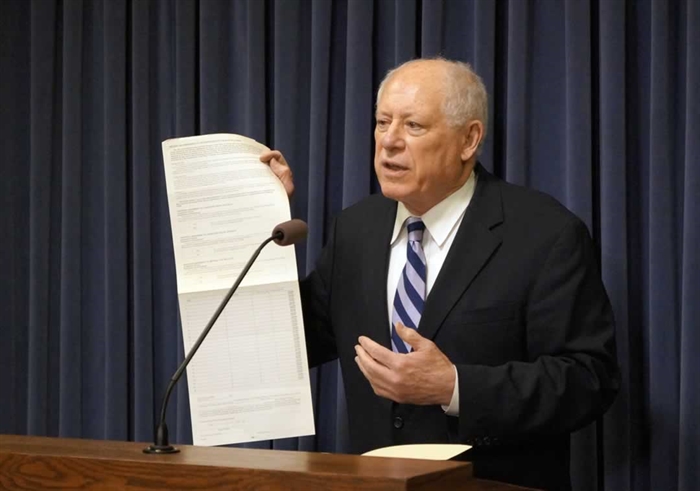Trending
- July 3, 2025
Bipartisan Support for Illinois Ethics Amendment Initiative

In a striking example of cross-party collaboration, the push for enhanced ethics regulation in Illinois gains momentum with backing from an unexpected quarter. The spotlight fell on this initiative when former Governor Pat Quinn, a Democrat, publicly endorsed a Republican-led proposition aimed at empowering citizens with greater influence over ethics reforms through constitutional amendments. This move symbolizes a significant step towards fostering a transparent, accountable governance structure in Illinois, underscoring the urgent need for ethical standards overhaul in the state’s political framework.
Unveiling the Proposal: A Path to Ethical Governance
At the heart of the discussion is House Joint Resolution Constitutional Amendment 19, introduced by Representative Ryan Spain, a Republican from Peoria. This legislative proposal seeks to widen the scope for citizen-initiated amendments, specifically targeting the enhancement of ethical standards for state officials and representatives. Currently, the Illinois Constitution restricts such citizen-driven amendments to structural and procedural changes within the legislature. Spain’s resolution, however, paves the way for amendments that advocate for stronger ethical guidelines for candidates and office holders across various levels of government, including local units, school districts, and state offices.
The Power of Citizen Engagement in Ethical Reforms
The initiative draws inspiration from the broader national context, where states like Missouri, Ohio, and Michigan allow citizens to propose and enact constitutional amendments directly. This mechanism, emerging from the Populist era, serves as a vital tool for voters to assert their will, bypassing potentially gridlocked or unresponsive legislative bodies. By endorsing this proposal, Illinois aims to join the ranks of states that prioritize direct democracy and citizen involvement in the pursuit of ethical governance.
A Historical Perspective: Illinois’ Struggle with Ethics Reform
Illinois’ journey towards ethical reform is marked by challenges and milestones. The state witnessed a notable attempt in 1976 to introduce ethics-related amendments, an endeavor ultimately thwarted by the Illinois Supreme Court. The successful amendment in 1980, which reduced the General Assembly’s size, stands as a solitary instance of citizen-initiated change in the state’s political landscape.
Recent years have seen a resurgence of focus on ethics reform, particularly among Republicans, amid high-profile corruption indictments involving key Democratic figures. The allegations against former House Speaker Michael Madigan and executives from Commonwealth Edison highlight the critical need for robust ethical standards. Quinn’s tenure as governor was marked by repeated calls for ethics reform, met with resistance from Madigan, illustrating the systemic barriers to change within Illinois’ political apparatus.
Conclusion: A Call to Action for Illinois Voters
The bipartisan endorsement of the ethics amendment proposal signifies a pivotal moment in Illinois’ quest for political integrity. It emphasizes the role of citizen activism in shaping a transparent, accountable governance system. As Illinois stands at this crossroads, the initiative invites voters to take an active stance in redefining ethical governance, underscoring the power of collective action in driving meaningful reform. With the upcoming trial of Michael Madigan, the context for this amendment becomes ever more relevant, serving as a reminder of the ongoing struggle against corruption and the imperative for systemic change.
© 2023, www.modelilgov.org/. All rights reserved/HOME/privacy-policy/ sitemap